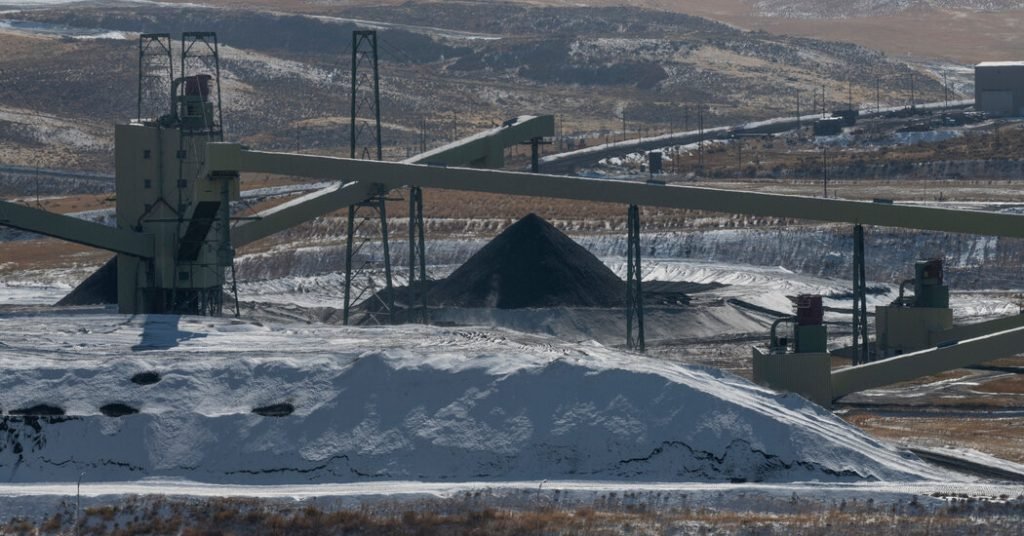
After declaring a national energy emergency on his first day in office, President Trump said Thursday that coal could be a fuel source for new electric generating plants.
He announced a plan to issue emergency declarations to build power plants to meet a projected increase in electricity demand for artificial intelligence.
“They can fuel it with anything they want, and they may have coal as a backup — good, clean coal,” Mr. Trump said in a virtual appearance at the annual World Economic Forum in Davos, Switzerland. He added that if gas and oil pipelines get “blown up,” coal could be used as a backup energy source.
“We have more coal than anybody,” Mr. Trump said. “We have more oil and gas than anybody.”
While the United States is the world’s largest producer of oil and natural gas, and while it has more coal reserves than any other country, it’s only the fourth-largest producer of coal, behind China, India and Indonesia.
But reliance on fossil fuels like coal made the United States one of the largest emitters of greenhouse gases like carbon dioxide and methane, which have irreversibly heated the planet and driven global climate change.
Despite Mr. Trump’s talk about building coal plants, the United States has drastically reduced its coal generating capacity in recent years. Most of the decline came because natural gas, and now renewables like solar and wind, were cheaper sources of energy. A 2023 study showed that 99 percent of U.S. coal plants were more expensive to run than renewable replacements.
By 2023, the 206 coal plants remaining in the United States supplied roughly 16 percent of the nation’s electricity, far below natural gas and less than both renewables and nuclear power.
Almost a quarter of current coal generation is slated for retirement by 2040, according to data compiled by the Energy Information Administration in October 2024. Those reductions cross 51 coal plants.
The pace of those retirements slowed last year while energy demand increased. Utilities predict a 20 percent increase in demand for electricity by 2035, according to data compiled by RMI, a nonprofit group focused on energy research.
Experts said that the rise in electricity use was expected under a clean energy transition and that coal generation wouldn’t be required to meet it.
“Utilities are skipping a step and asking everyone to take it as a foregone conclusion that if there’s demand growth from manufacturing, onshoring, and data centers or A.I., then it has to be met with coal, when in fact it’s one of the most expensive resources left for them to operate,” said David Pomerantz, the executive director of the Energy and Policy Institute, a research and advocacy group.
But industry groups said that under Mr. Trump, it might be possible to increase coal exports and build smaller coal plants.
“There’s a sense of optimism with the new administration,” said Emily Arthun, chief executive of the American Coal Council.
While the coal industry could experience a small bump under Mr. Trump, experts said coal was simply too expensive to make a comeback.
“Coal is fundamentally uneconomic,” said Sean O’Leary, senior researcher at the Ohio River Valley Institute, an energy think tank. “Any need that isn’t met by wind or solar or battery storage will for the most part be met with natural gas, and coal will still be a distant fourth resource in that mix.”
The Trump administration’s unwavering commitment to fossil fuels could hinder the country’s competitiveness in the energy transition.
China dominates the United States in virtually every aspect of clean energy, and fossil fuel generation has reached a historic low in the European Union. Last year, solar overtook coal for the first time, and wind overtook both coal and gas, according to a new report by Ember, an energy think tank.






